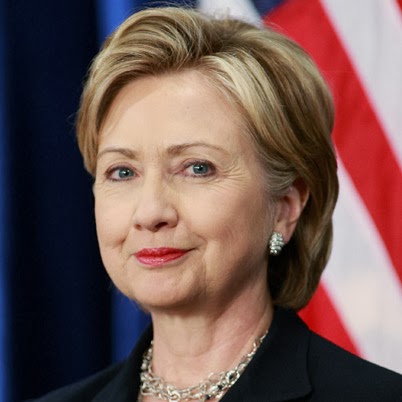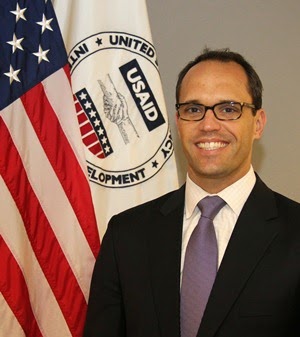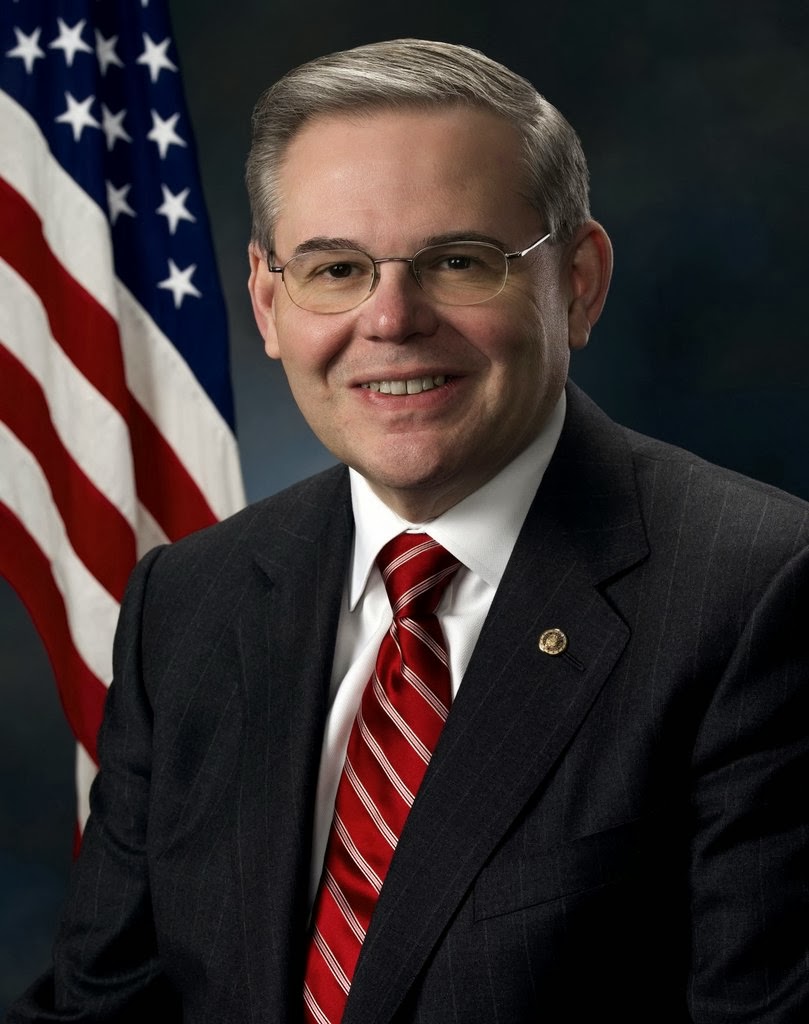alongthemalecon.blogspot.com
Barring an act of Congress, the U.S. Agency for International Development will end its work in Cuba in 2015.
Cuban-American lawmakers had pounded away at the agency for several years, accusing it of inefficiency and political favoritism.
Finally, they got their wish: USAID's Cuba programs were defunded in the latest spending bill (see page 1,332 of 1,582-page Consolidated Appropriations Act of 2014).
The spending bill authorizes the State Department to spend $17.5 million
for programs in Cuba, but none of it will go to USAID. The bill states:
Of the funds appropriated by this Act under the heading ‘‘Economic Support Fund’’, up to $17,500,000 should be made available for programs and activities in Cuba.
None of the funds appropriated by this Act under the heading ‘‘Economic Support Fund’’ may be obligated by USAID for any new programs or activities in Cuba.
A separate 622-page document outlines how the $17.5 million should be spent:
- At least $7.5 million to the National Endowment for Democracy;
- No more than $10 million to the Bureau of Democracy, Human Rights and Labor, nicknamed DRL, and Bureau of Western Hemisphere Affairs.
Page 122-123 of the document states:
Cuba.- In subsection (b), the agreement includes up to $17,500,000 for programs and activities in Cuba, and of such funds, not less than $7,500,000 shall be provided directly to the NED. Not to exceed $10,000,000 shall be administered by DRL and the Bureau of Western Hemisphere Affairs at the Department of State. Funds should be programmed at a rate that allows for proper management and oversight.
Four of USAID's current partners in Cuba - the Foundation for Human
Rights in Cuba, International Relief and Development, National
Democratic Institute and the Pan-American Development Foundation - will
end their Cuba programs in September 2014.
The three remaining partners - Grupo de Apoyo a la Democracia, the
International Republican Institute and New America Foundation - finish
up in September 2015 (See USAID's Cuba page).
Any of these organizations may well continue working in Cuba - they would simply have to obtain new grants outside USAID.
USAID began working in Cuba in 1996, a year after then-President Bill
Clinton announced new democracy programs targeting Cuba (See program overview).
Funding hit a high of $45.33 million in 2008 during the Bush administration.
Influential Cuban-American lawmakers have been unhappy with Barack
Obama's policies toward Cuba practically since he took office on Jan.
20, 2009.
Both the State Department and USAID felt their wrath.
During House Committee on Appropriations subcommittee hearing on March
10, 2011, U.S. Rep. Mario Diaz-Balart complained that the Obama
administration had eased sanctions.
Meantime, Diaz-Balart said, Cuban dissidents faced "increased repression
and oppression." He told then-Secretary Hillary Clinton:
You're aware of the case of Zapata Tamayo and others -- and of taking of an American hostage even. The question is, what does a regime have to do to have -- to have any consequences from this administration? Is the administration willing to look at tightening of the regulations, a harder push for democracy assistance? At the very least a State Department travel warning again?
 |
| Hillary Clinton. Photo: Biography.com |
Clinton replied:
We share your commitment to freedom and democracy for the Cuban people. That's an absolute ironclad commitment.
I've had that commitment myself personally. This administration and president share it.
We deplore the injustice toward Alan Gross. We want him home. He needs to be home with his family immediately. And we mourned the loss of Mr. Zapata, the mistreatment of his mother, and all of the other abuses by this Cuban government.
So we share the same goals, and we share the same emotions.
Our decision to try to engage more with the Cuban government only indirectly by helping the Cuban people is intended to try to strengthen direct engagement, and provide more support for our grassroots initiatives.
So we can certainly disagree about the tactics, but I think we have total agreement about what we're attempting to achieve in terms of goals.
| Mario Diaz-Balart |
Diaz-Balart replied:
... I just want to make it very clear, there's no doubt in my mind that you want freedom for the Cuban people. No doubt in my mind. And I don't question it at all.
... Madam Secretary, I would just like to continue to work with you. Because it's -- it is evident that -- that the -- the loosening of the restrictions are, frankly, helping the regime -- not helping it. It is helping to fund the regime at a time when this administration has said publicly, on more than one occasion, that the situation in Cuba, the economy's in dire straits.
So I would just like to continue to work with you on that. Hopefully, that -- we can sit down and look at these facts and maybe reconsider or look at other options that would be more effective in helping to -- help the Cuban people in their -- in their -- in their fight for freedom.
So thank you, Madam...
Clinton told him:
I would be very happy to do that, Congressman.
As senator, Kerry was a harsh critics of USAID's programs in Cuba. Now
he was in an even stronger position to influence the agency's policies.
Cuban-American lawmakers didn't like it. Some blamed Kerry for the State
Department's 2013 request to cut to Cuba program from $20 million to
$15 million (See page 108 of 190-page Executive Budget Summary).
The lawmakers also accused USAID of favoritism, and objected when the
agency steered a $3.4-million grant to a human rights group linked to
the Cuban American National Foundation, once headed by Obama ally and
Democratic congressman Joe Garcia.
In December 2012, U.S. Rep. Mario Diaz-Balart, R-Fla., questioned why
USAID had given money to the Foundation for Human Rights in Cuba, a
group associated with the CANF. He told the Miami Herald that U.S.
democracy funds “should be provided only to organizations with strong
experience and proven track records” on the island. He said:
It would be a disgrace if the Obama administration broke with tradition and used a penny of that critical funding to reward political cronies.
 |
| Mark Lopes |
Mark Lopes, USAID Deputy Assistant Administrator for Latin America,
denied the accusations of favoritism. He told the Herald that a
“technical evaluation committee” is in charge of picking grant winners.
At the time, Garcia told me Diaz-Balart and other hardline lawmakers had
gotten their way for years as USAID grants were steered to groups they
favor. They are upset now, Garcia said, because a grant went to an
organization they don’t support (See more about the controversy here).
In any case, Sen. Robert Menéndez complained bitterly about USAID's
priorities during a Senate Committee on Foreign Relations hearing on
April 24, 2013. Here's an excerpt of his exchange with Rajiv Shah, the
USAID administrator who reports to Kerry.
MENÉNDEZ: We have seen a continuing significant decline in our assistance to the Western Hemisphere, particularly to Latin America and the Caribbean.
So, I am amazed that with all of those realities and with the unrest and the movement away from democracy in the region towards dictatorships and totalitarianism that we continue to cut.
Sen. Bob Menéndez
... when I look at the totality of these cuts, I just don't get it and that's why we create a void in which people like Chavez when he was alive, ultimately you know, filled the void where the Chinese are coming in, in our own hemisphere, where the Iranians have been promoting diplomacy in the hemisphere, I just don't get it.
So I look at that, I look at in another context a cut on Cuba's democracy program at a time in which in fact we had 6,000 arrests and detentions last year. We had the Ladies in White, a group of women whose husbands or sons sit in Castro's jails simply because they sought peaceful change in their country get attacked brutally every week. We saw Oswaldo Payá assassinated, one of the leading human rights individuals inside of Cuba. His daughter was here not too long ago and made it very clear to us from all the information that he was assassinated and yet we see a cut in that program.
And then, you know, I'd saw -- I look at the totality of this and it certainly doesn't make public policy sense to me. So I'm going to be looking to try to change this...
Rajiv Shaw
SHAW: We had the chance to discuss this and I very much appreciate and recognize your strong and consistent leadership here. We, too, believe the region is critical and important. We've had to present a budget that conforms to an overall 6 percent reduction which has forced a lot of difficult tradeoffs at a time when the actual number of humanitarian disasters around the world is doubling that we need to respond to in terms of caseloads.
MENÉNDEZ: I'll just close on this, Administrator. For several years now, whether you or the administrator or previous ones, I have heard that there's always tough tradeoffs and where the tough tradeoff goes always is Latin America and the Caribbean... and I just think that that is foolish. At the end of the day, we're gonna have a problem and then when we have a problem, we'll spend the fortune. We did the same thing with Central American wars and then after we spent a fortune in Central America providing democracy, we've got out and we didn't lay the foundation, the seeds that would have provided long term growth and prosperity...
During the same hearing, Sen. Marco Rubio also complained about the Cuba program cuts. Here's his exchange with Shah:
RUBIO: ...I wanted to close the loop and just add my own thoughts on the Cuban democracy programming. ...My understanding is that your core budget at USAID has taken about a 10 percent reduction, is that correct? But the Cuban democracy program has taken a 25 percent reduction, which seems way out of proportion to the general reduction for a program of this small scale. And a couple of points come to mind.
Marco Rubio
Number one, is every time some of our colleagues or others visit Cuba, one of the first things they get complaints about from the Castro government is the democracy programs. They absolutely hate it. That's number one. And there's a reason for that 'cause not only are they anti-democracy but apparently, they felt these programs in the past have been quite effective.
The second problem then is that over the last few years, and this is documented, I'm not making this up. Some of our colleagues including the former chairman of this committee through staff held this program up with endless questions about it and so I don't think it's a coincidence that this was reduced in so completely out of proportion, from the size and scope of the program. And I just hope that this will be reversed, 'cause I think it's a terrible precedent and a terrible idea.
Beyond that, I do have concerns that I hope will be addressed when the funding does come out and hopefully, it will be at a higher level once it goes through this process, that it's truly being purposed for democracy purposes. And I have no problem and obviously, I don't have anything here to say today about the people who are currently receiving the funds and how they're using it. I just think it's important that we'd be clear. This is a democracy program and there are actually provisions and law, the Cuban Democracy Act, the Libertad Act that actually condition what it can be spent on and what it cannot be spent on.
So I'm not claiming that it's being spent on things that it shouldn't be. I think it's very important that we be clear that this money is being spent on the promotion of democracy, not on the creation of grassroots community organizations that specialize in, you know, better sewage treatment programs or what have you. This is about democracy. That's what this program is about. And I hope we'll be vigilant in that regard and I also think it's important to ask ourselves and by the way, this is not a one year cut. My understanding, Mr. Chairman, is this has been a steady erosion of this program over the last few years. But a 25 percent cut on such a small program combined with what we've seen some other political resistance do it over the last few years. I personally don't believe it's a coincidence.
SHAH: ... I can assure you on Cuba, your point is well taken and we will make sure and as we have done that the focus of these programs sticks to the letter of the law, is focused on democracy and civil society, and per the recent GAO report, I think there's a third party assessment that in fact that has been how we've managed to implement this effort.
U.S. Rep. Ileana Ros-Lehtinen weighed in at a House Committee on Foreign Affairs hearing on April 25, 2013.
Here is her exchange with Shaw:
ROS-LEHTINEN: In addition, Dr. Shah, I continue to be concerned over the administration's attempts to cut much-needed democracy programs to the Cuban people. For the pro-democracy activists remain on hunger strikes in Cuba to call attention to the dozens of Cubans who are being detained by Castro's state security forces.
These brave heroes are risking their lives, yet we are cutting their support, which is not prudent, especially at a time when the crackdown by Castro's thugs is actually on the rise on the island.
SHAH: ... on Cuba we expect -- again, the goals there are support for civil society and democracy, with -- with some small humanitarian efforts. And we have worked closely with our partners. We believe the president's budget of $15 million reflects an appropriate investment that they have the capacity to implement.
We recognize and take some faith in the fact that the GAO reviewed our approach to implementing this program and -- and very strongly commented on the effective reforms we put in place to have a clear and compelling implementation strategy for this effort.
 |
| Ileana Ros-Lehtinen |
Hardline Cuban-American lawmakers say they do not want any engagement
with the Cuban government. They want to help democracy activists bring
down the socialist government. And they have expressed frustration with
the Obama administration's willingness to hold talks with Cuban
officials.
Said Ros-Lehtinen at a Subcommittee on the Western Hemisphere hearing on June 19, 2013:
This week we find out the State Department is engaging the Castro regime in direct mail and migration talks. The Castro regime will not, has not, never has complied with any international agreement. In fact, just a few years ago, the regime signed two international human rights accords. Yet, the tensions on the island have risen, valiant defenders of democracy like Las Damas de Blanco, the Ladies in White, face weekly beatings.
In addition, it is the Castro regime that does not comply with the mail accords that we signed with him from years ago. Meanwhile, a U.S. citizen languishes unjustly in a Cuban prison. Cuban activists, as we speak, are risking their lives on hunger strikes.
And over 70 refugees, 70 fugitives from safe haven, have gone to Cuba for safe haven. They're fugitives from U.S. law, including...a cop killer from New Jersey. What's next with this administration?
Enough is enough. Basta. The Cuban people deserve freedom and democracy, just as all oppressed people do and these talks will not help them achieve those goals.
Some lawmakers began trying to wrest the Cuba programs from USAID's control.
On July 30, 2013, U.S. Rep. Kay Granger introduced H.R. 2855. It didn't
make it out of committee, but foreshadowed what was to come. It stated:
(See page 143 of 206-page document).
Cuba.-- Of the funds appropriated by this Act under the heading ``Economic Support Fund'', $20,000,000 shall be transferred to, and merged with, funds available under the heading ``National Endowment for Democracy'' to promote democracy and strengthen civil society in Cuba.
Granger is the chair of the State and Foreign Operations Appropriations Subcommittee. Members of the subcommittee include Mario Diaz-Balart.





No hay comentarios:
Publicar un comentario